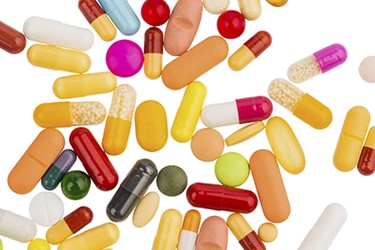How Tech Is Being Used To Treat Drug Addiction
By Kayla Matthews, Productivity Bytes

A drug or alcohol addiction is a psychological dependence on a toxic substance that forms after enough use. The addicted person will continue their habits even if it puts themselves or others in danger.
Those who abuse these substances have a difficult time distancing themselves from the lifestyle, even when they want help. Because of these challenges, doctors and therapists have started looking into technology to offer their patients and clients more options.
Technology has already facilitated many aspects of daily life already. From attending concerts in virtual reality to creating better prosthetic limbs for amputees, technology is improving people's lives more than ever before.
In the healthcare sector, specifically, these advancements include doctor appointments via telecommuting and interacting in a community of other people with addictions. Here are five apps which are helping people in recovery in their everyday life.
1. Sober Grid
Essentially a social media platform, the Sober Grid app is for those who are sober for any amount of time or trying to become sober. You can connect to others going through the same situation, build a support group and check in with your daily health. One reviewer writes, "The content on the news feed is so helpful for us in the recovery process. [Sober Grid] will give you inspiration and motivation to stay sober."
2. AA Big Book
The unofficial Alcoholics Anonymous Big Book is an app of 164 pages filled with prayers, personal stories, step-by-step guides and more. This app is designed to help people who have been with AA for a while, have just joined, are thinking about joining and everyone in between. In America, one in 12 adults suffer from alcohol abuse, and AA has been around to help people who wanted to become sober since 1935.
3. BioCorRx
A support group is amazing for a recovering addict, but even getting to that point can feel like a battle. An in-depth program called BioCorRx helps those with alcohol and opioid addiction by offering out-patient care. Partnered with independently owned treatment centers across America, the BioCorRx Recovery Program is designed to treat the mental and physical toll of addiction.
They use medication and cognitive behavioral therapy, or CBT, to attack addiction on multiple fronts. BioCorRx is on this list because they believe in a constant supportive atmosphere and have an app to support all addicts on their journey to sobriety. The program is also discreet with little to no disruptions in daily life.
4. Ria Health
Every individual is different, so addiction is different to everyone. For addicts who aren't too badly off and would like to not stop completely, the organization Ria Health offers a less intensive program to reduce or stop drinking. The entire program is focused on improving your relationship with alcohol. You can create a plan that fits your needs afterwards with your own personal care team. They even offer prescriptions to help reduce urges.
5. Workit Health
The Workit Health recovery app comes with web-based support, craving logs, exercise advice, CBT and motivational interviewing. Workit Health has board-certified doctors and therapists always available right on your phone. Their system is different because it combines the aspects of a mobile support system with intensive therapy and medication to get you back on your feet. While there is a price tag, this program is cheaper than most copays and comes with a free demo.
With a program this broad and with so many doctors available, you'd naturally think that they have a lot of programs, which they do. Workit Health offers five different programs: Quit Opioids, Moderate or Quit Drinking, Online Therapy, For Employers and For Providers. The first two set aside options depending on the addiction while the last two offer programs to those who aren't addicted, so they can either create a partnership or prevent addiction from occurring.
Fighting Addiction
According to the National Institute of Drug Abuse, 54.1 percent of addicts are below the age of 18. There is no silver lining from this statistic, but the age range does offer doctors and therapists a better way to help. With the "generation of technology" in crisis, one of the best ways to reach them is through their smartphones. Creating more apps to help them get sober can save lives and prevent addiction from getting worse.
Technology also has a high correlation with drug use, but this isn't surprising. Technology and the internet affect almost every aspect of the average person's life, especially for the younger generations.
There are parts of technology that can harm, of course, but there also parts that are beneficial. It's up to the smartphone user, app creator and addict to find the good parts for themselves. Reaching out to help others is the first step to helping everyone recover.
About The Author
Kayla Matthews is a MedTech writer whose work has appeared on HIT Consultant, Medical Economics and HITECH Answers, among other industry publications. To read more from Kayla, please connect with her on LinkedIn, or visit her personal tech blog at https://productivitybytes.com.
